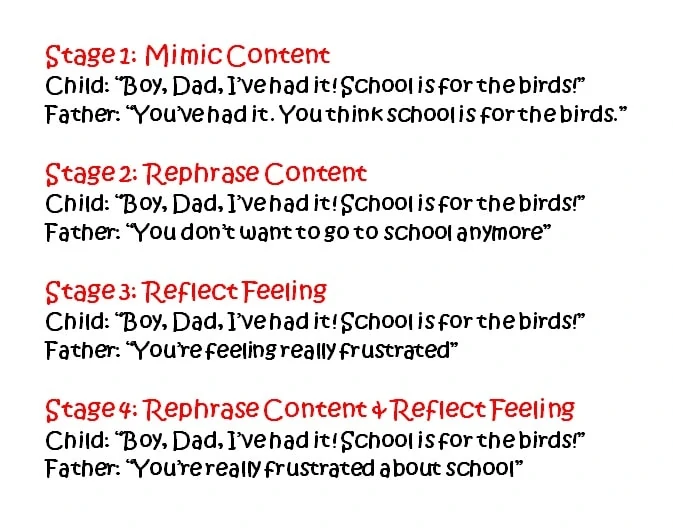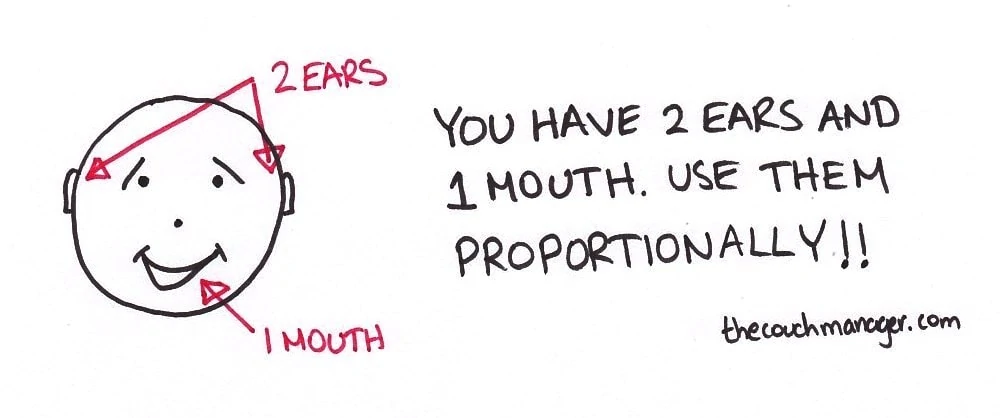“You’ve spent years learning how to read and write, years learning how to speak. But what about listening?” – Stephen Covey
So true. Whether you listen as a salesman, a consultant, a CEO or a parent, you’ve probably spent very little time honing your skills as a listener.
In Covey’s The 7 Habits of Highly Effective People, which I just re-read after reading it around 13 years ago, the chapter on Habit 5: Seek First to Understand, Then to be Understood (which happens to be my one-sentence summary of the book), he focuses on the art of listening, and has some interesting insights about it.
Before getting into that, I thought I’d share a quote a very smart person once told me:
According to Covey, there are 5 levels of listening :
- Ignoring (no idea what you just said)
- Pretending (you think I’m listening)
- Selective Listening (I hear part of what you’re saying)
- Attentive Listening (I’m paying full attention)
- Empathic Listening (I fully understand & feel what you’re saying)
The empathic level is the hardest, but this is the level most effective business leaders and executives function at. It’s about putting yourself in the other person’s shoes, and really feeling what the other person is going through. As Covey puts it, it’s getting “inside another person’s frame of reference.”
The key to empathic listening is to repeat what the other person is saying, which any experienced manager or parent would agree with. However, according to Covey, this repetition has 4 different developmental stages (I’ve quoted Covey’s examples of a conversation between a child and his father that explains each stage):

I’ve been trying this for a while, and even though I can’t always perform at that level of concentration & empathy, training my mind to be aware of it has brought on some pretty intriguing results (both professionally and personally).
As a side note, in a virtual team environment, it’s quite important to focus on words that cover the Stage 3 part (reflecting feeling), mainly because unlike face-to-face conversations, your body language and facial expressions cannot do that part for you.
Let me know your thoughts in the comment section below!


Nice post.
I just want to add, that those 4 stages are also described in Parent Effectiveness Training (P.E.T.).
In P.E.T. the 4 stages are described as “Active Listening”.
Thanks! Wasn’t aware of P.E.T. – I should probably look into that 🙂